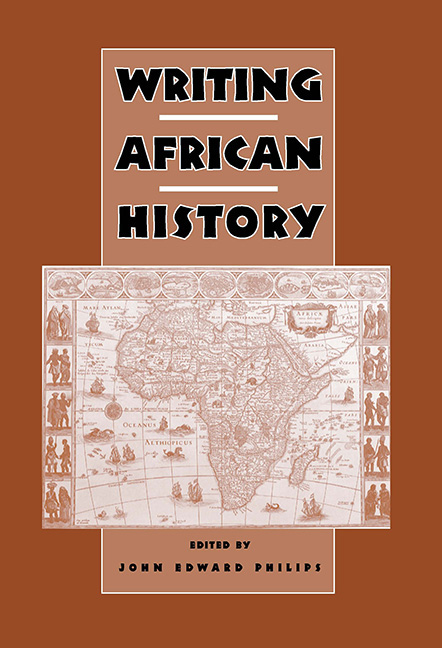Book contents
- Frontmatter
- Dedication
- Contents
- Acknowledgments
- Introduction
- Part I Background
- Part II Sources of Data
- 2 Archaeology and the Reconstruction of the African Past
- 3 Writing African History from Linguistic Evidence 86
- 4 Physical Anthropology and African History
- 5 The Importance of Botanical Data to Historical Research on Africa
- 6 Oral Tradition as a Means of Reconstructing the Past
- 7 Oral Sources and the Challenge of African History
- 8 Arabic Sources for African History
- 9 European Documents and African History
- 10 Mission and Colonial Documents
- Part III Perspectives on History
- Part IV Conclusion
- Contributors
- Index
- Miscellaneous Endmatter
6 - Oral Tradition as a Means of Reconstructing the Past
from Part II - Sources of Data
Published online by Cambridge University Press: 11 May 2017
- Frontmatter
- Dedication
- Contents
- Acknowledgments
- Introduction
- Part I Background
- Part II Sources of Data
- 2 Archaeology and the Reconstruction of the African Past
- 3 Writing African History from Linguistic Evidence 86
- 4 Physical Anthropology and African History
- 5 The Importance of Botanical Data to Historical Research on Africa
- 6 Oral Tradition as a Means of Reconstructing the Past
- 7 Oral Sources and the Challenge of African History
- 8 Arabic Sources for African History
- 9 European Documents and African History
- 10 Mission and Colonial Documents
- Part III Perspectives on History
- Part IV Conclusion
- Contributors
- Index
- Miscellaneous Endmatter
Summary
When, in the wake of World War II, serious historians began to try to write serious histories of Africa before the arrival of the Europeans, they faced what seemed to be an insuperable hurdle. For most of the continent there were no written records before the mid-nineteenth century—in several places even later. What to do? After all, this was a dilemma that was all but unprecedented. True enough, anthropologists had been studying African societies for fifty years or more, and in the process had occasion to probe the past as well as the present. But for most anthropologists of the time, the past was the present—that is, they saw dynamic change as virtually nonexistent, meaning that what the saw in the field was essentially what any outsider would have seen 300, 400, 500 years ago, or even longer. For historians, on the other hand, the past is interesting precisely because of change. Historians then, must seek out new ways of reconstructing the African past, or give the project up as hopeless.
There were only two choices, really. They could depend on the work of archaeology, but this was in its infancy and in any case archaeological evidence requires specialized handling and interpretation. The alternative was oral tradition, that is, memories of the past handed down from one generation to the next, until, the idea went, it would be collected, written down, and published. From the late 1950s then, Africanist historians set out to recover the more distant African past.
In its magnitude the new enterprise had no model. Still, it is true that history based on oral evidence was everywhere one cared to look. Take the Bible. Most biblical scholars today emphasize the role that oral tradition must have played in the writing of the pre-monarchical books, those that traced the Israelites from Adam through Abraham, on to Joseph and into Egypt, out of Egypt again, to begin a campaign of conquest that lasted several centuries until David united the twelve tribes into a state. Others would insist that even the history of the Divided Monarchy after Solomon was largely based on oral evidence.
Herodotus, widely recognized as the father of history in the western world, palpably relied on data he had collected in the field; in fact, if all he wrote were true, he would be the father of fieldwork as well as the father of history.
- Type
- Chapter
- Information
- Writing African History , pp. 169 - 190Publisher: Boydell & BrewerPrint publication year: 2005

